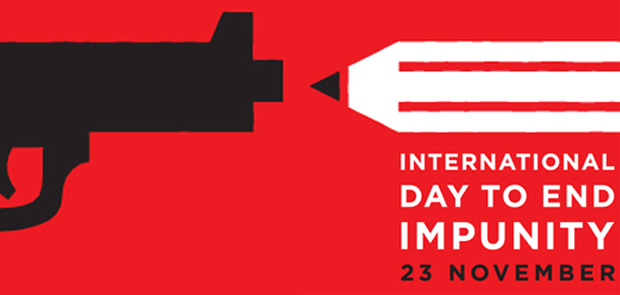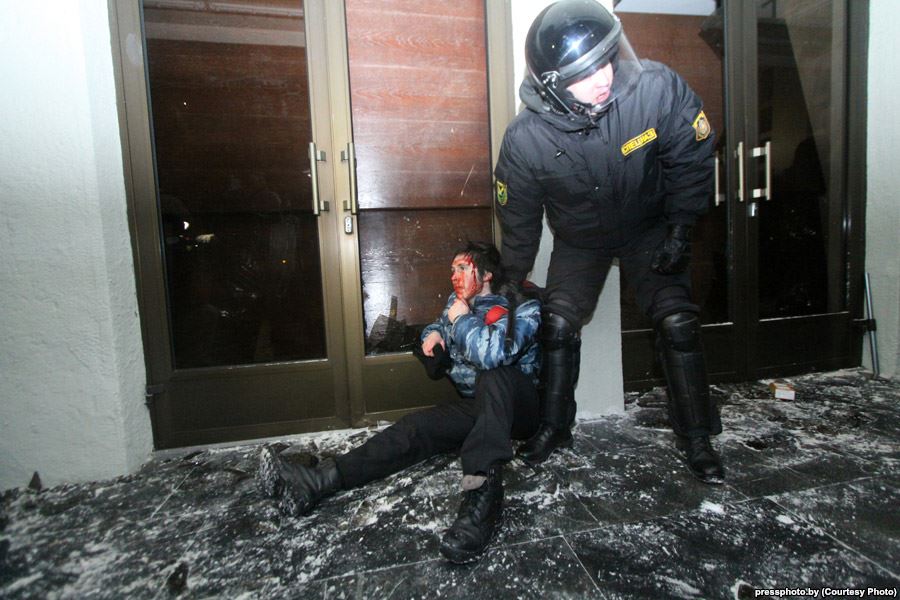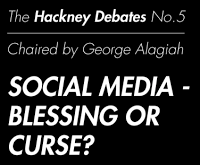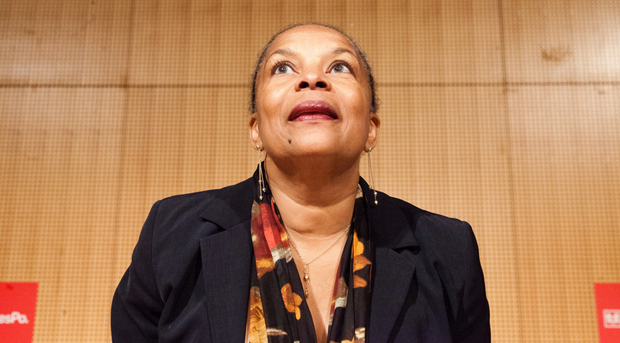26 Nov 2013 | News, Politics and Society, United Nations

The UN has been urged to officially recognise the International Day to End Impunity for Crimes against Journalists as the Third Committee, dedicated to dealing with human rights issues, will today be asked to vote on a draft resolution.
The resolution, backed by at least 48 countries, is based on the UN Plan of Action on the Safety of Journalists and the Issue of Impunity, approved on 12 April 2012, which saw United Nations agencies work with member states towards a free and safe working environment for journalists. If successful, the UN Secretary General will present a report on the implementation of the resolution at the next General Assembly 2014, with 2 November officially being recognised as the official UN International Day to End Impunity.
Co-sponsored by 80 organisations and backed by countries including the United States — and even Azerbaijan and Colombia — the draft resolution calls for the acknowledged ‘condemnation of all attacks and violence against journalists and media workers, such as torture, extrajudicial killings, enforced disappearances and arbitrary detention, as well as intimidation and harassment in both conflict and non-conflict situations’.
Index on Censorship as a founding member of IFEX has been supporting the International Day to End Impunity since its launch in 2010 which has seen the 23 November recognised as the day for campaign. Annie Game, IFEX Executive Director, stated: “This is a positive move forward because IFEX members acknowledged that making the International Day to End Impunity an official UN day can help to raise the global profile of the issue. Every year, a growing number of IFEX members and concerned individuals take part in this campaign that strikes at the very roots of the problem. Having the UN acknowledge the importance of this issue will help us broaden our reach and turn up the volume on the call to end impunity.”
The draft resolution also:
• acknowledges ‘the specific risks faced by women journalists in the exercise of their work, and underlining, in this context, the importance of taking a gender-sensitive approach when considering measures to address the safety of journalists’;
• the acknowledgement that ‘journalism is continuously evolving to include inputs from media institutions, private individuals and a range of organisations that seek, receive and impart information and ideas of all kinds, online as well as offline, in the exercise of freedom of opinion and expression, in accordance with article 19 of the International Covenant on Civil and Political Rights’;
• and ‘urges Member States to do their utmost to prevent violence against journalists and media workers, to ensure accountability through the conduct of impartial, speedy and effective investigations into all alleged violence against journalists and media workers falling within their jurisdiction, and to bring the perpetrators of such crimes to justice and to ensure that victims that access to appropriate remedies’.
The full draft resolution can be seen here.
This article was originally published on 26 Nov 2013 at indexcensorship.org
25 Nov 2013 | News

The Supreme Economic Court of Belarus has upheld a decision by the Ministry of Information to cancel the licence of the Lohvinau Publishing House.
The company, owned by Ihar Lohvinau is well-known for publishing independent Belarusian literature and promoting national culture.
In September 2013 the Ministry of Information decided to withdraw its publishing license “for gross violations of the licensing legislation.”
The reason for the decision was Lohvinau’s publication of the Belarus Press Photo 2011 album, which was found to contain “extremist material” by a district court in Ashmiany in April 2013.
“It is quite obvious that the decision is unfair and we are going to seek justice. The Ministry of Information didn’t provide us with answers to our questions in the court room. We are going to appeal against the decision,” said Ihar Lohvinau after the hearings on 18 November 2013.
“The Ministry of Information interprets the licensing law too broadly; the licensing regulations in Belarus contain no reference to any ‘extremist materials’. Besides, the photo album in question was published long before it was considered ‘extremist’, it was sold freely in book shops, and the publisher bares no responsibility for the content of it or any later court decisions,” says Andrei Bastunets, a media lawyer and a Vice Chairman of the Belarusian Association of Journalists.
Belarusian law does not contain a clear definition of extremism, thus allowing arbitrary implementation of anti-extremist legislation. It has been used to silence critical voices and independent media in the country in the past.
As well as pictures of cute animals, the album, printed to accompany an exhibition of the best of press photography, featured images of bleeding protesters taken during a crackdown on an anti-government demonstration in Minsk after the presidential election of 2011.
25 Nov 2013 | Events
Chaired by the
BBC’s George Alagiah, the Hackney Debates have proven a popular addition the London calendar, returning to St. Peter’s Church for the fifth time.
The theme this time is the impact of social media on society. Do services such as Twitter, Facebook and Instagram have a positive or negative effect?
Speaking in the debate will be:
Dr. Paolo Gerbaudo,
Lecturer in Digital Culture and Society at King’s College,
Caroline Criado-Perez,
Journalist and Feminist Campaigner,
Stephen Foster,
Principal of the Bridge Academy.
Admission is free, so please arrive  early for seats, and there will be a paid bar.
early for seats, and there will be a paid bar.
25 Nov 2013 | France, News, Politics and Society

French Minister of Justice, Christiane Taubira makes a speech about penal reform in the lecture hall of the Political Science University in Paris. (Photo: Davide Del Giudice / Demotix)
An obscure 16 page-long far-right magazine recently put France’s black justice minister Christiane Taubira on its cover, comparing her to a monkey. The storm of indignation that followed gave unexpected visibility to the magazine and members of the government expressed their desire to sue the magazine or to block the distribution of the infamous issue. Was this an attack on the freedom of the press? Or rather, an occasion for French politicians to look good and to make everyone forget about their own track record?
“Crafty as a monkey, Taubira gets her banana back”, said Minute’s cover, next to a photo of Taubira looking unhappy. The title used a common French phrase (“avoir la banane” means “to be in good form” in French).
Following the outrage caused by this cover, Jean-Marc Ayrault, France’s prime minister, asked prosecutors to investigate whether any law had been broken. The prosecutors decided it had and opened an investigation for “injure publique à caractère racial” (racist public slur). The interior minister, Manuel Valls, announced he was examining whether it was legally possible to block the distribution of the magazine. This, however, has not been followed by any measures.
Taubira, 61, was born in French Guyana, where she started her political career as a supporter of independence for the ex-colony. She has been the driving force behind the 2001 law that recognises the Atlantic trade and slavery as a crime against humanity and a strong advocate of the law allowing same-sex marriage passed this year.
As such, she has suffered an escalation of racist abuse from the opponents to same sex-marriage. Last month, Anne-Sophie Leclere, a Front National municipal election candidate, was dismissed by her party after comparing Taubira to a monkey on her Facebook page and on TV. “I prefer to see her swinging from the branches of a tree than in the governement”, she told a reporter. The FN subsequently sued Taubira for having insulted the party.
During a recent visit to Angers, the minister faced kids from the “Manif pour tous” waving a banana at her and chanting: “Who’s the banana for? For the monkey!” The abuse is reminiscent to what Cécile Kyenge, minister of integration in the current Italian governement, has been facing in Italy and rife with references to colonisation: In an October demonstration of the extremist Catholic Civitas Institute, a priest was heard shouting: “Y’a bon Banania, y’a pas bon Taubira” – a reference to the old advert for Banania chocolate powder which featured a Senegalese infantry man speaking in pidgin French, an advert which is seen as a symbol of French colonialism.
Minute’s words “deny that I belong to the human race”, said Taubira, who refused to prosecute the magazine.
Created by supporters of French colonisation in Algeria in 1962, Minute backed the Front National party in the 1970’s and has been struggling over the past years. Its publishing company went into administration last March and the magazine currently counts only three employees. For the magazine, the infamous front page has been a success: “We wanted free publicity. We got more than we could have dreamed of”, said one of their journalists. Hélène Valette, spokeperson for Minute added: “We take responsibility for this cover. It’s satirical. No one takes offense at the covers of Charlie Hebdo.”
Satirical publication Charlie Hebdo responded to this statement saying: “Some people have actually taken offense at the covers of Charlie Hebdo, among which the Catholic far-right which has sued us 12 times in 20 years (…) Minute does not defend the freedom of the press. It prepares the ground for future racist crimes.”
The law against racist public slur was added in 1972 to the 1881 Law on Press Freedom. France has some of the toughest hate speech laws in the EU. Minute’s editor is risking up to six months in jail and a 22,500 euros fee.
For French politicians and for the press, the racist abuse against Taubira has actually provided an occasion to express unanimous indignation and to push under the carpet their own recourse to racist rhetorics. As Julien Salingue wrote in Acrimed (an independent organisation criticising the media) some of the media coverage of the abuse looked like an investigation led by suspects. “Has France become racist?” recently asked the Parisien newspaper on its front page, forgetting previous covers demonising migrants. The pattern was shared by Le Point and L’Express magazines, known for their sensationalistic Islamophobic covers.
At the launch of the Front National municipal campaign, a journalist from France Inter radio deemed fit to give a platform to 85 year-old Jean-Marie Le Pen and ask him for his opinion of Christiane Taubira. Always predictable, Le Pen said that because Taubira had been independentist she was against France and had been chosen because the colour of her skin could serve as a shield when proposing unacceptable laws.
Interior minister Manuel Valls has used the attacks on Taubira to his political advantage and has been very prompt in saying he wanted to ban the circulation of Minute – which seemed at best useless, as the damage had been done, at worst, counterproductive: it would insure more publicity for Minute and allow the publication to portray itself as a defendant of the freedom of the press. Valls happens to be well-known for its anti-immigrants and anti-Roma policies and rhetorics. France’s national union for undocumented migrants, which is planning a protest in front of the Parti Socialiste headquarters on 27 November, argues that “the liberation of racist speech is a result of the policy of successive governments which have agreed to the idea that “immigration is a problem” and stigmatised Roma people, Muslims and all foreigners, especially undocumented people.”
Henri Maler, one of Acrimed founders, tweeted: “Fighting racism exclusively by outraged declarations and legal action = emptying the ocean with a tea spoon.”
This article was originally posted on 25 Nov 2013 at indexoncensorship.org




